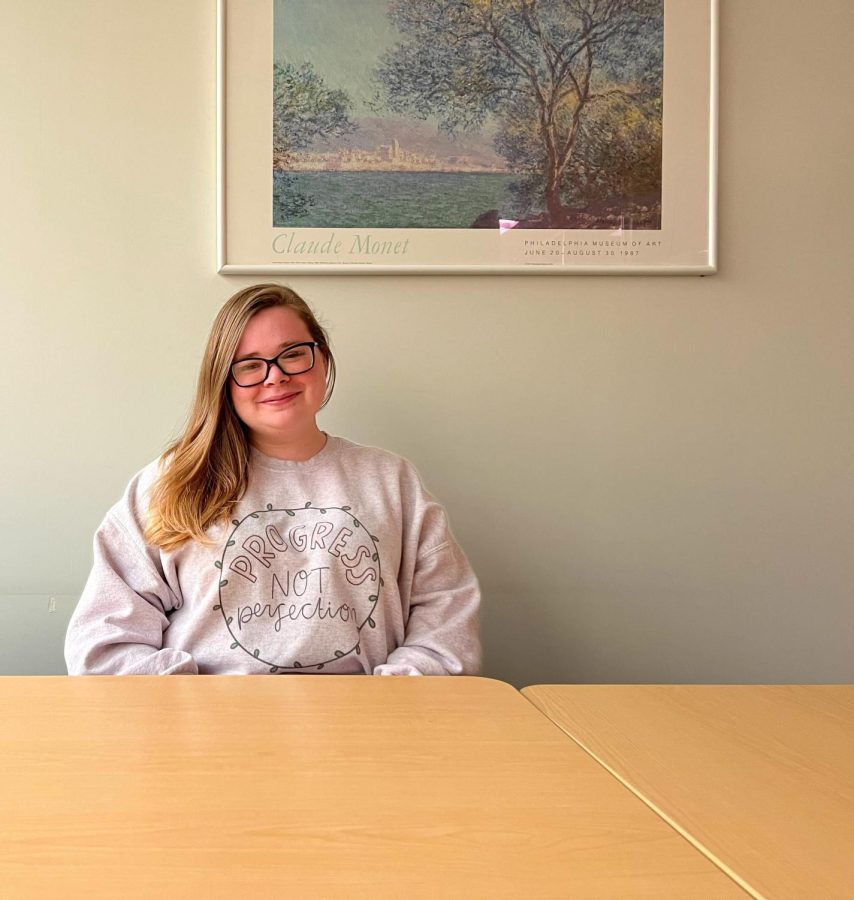Jennifer’s Story: A Tale of Triumph Over Tribulation
One COD student’s story of using her past experience with addiction to help others in their journey to recovery.
April 25, 2022
This article contains themes about suicide and drug-use.
When Jennifer Grasser was 13 years old, she experienced her first hospitalization from attempted suicide. She described her struggle with mental health that began from a young age, noting that after the scare and 15 years of therapy, she still felt alone and sought out comfort in whatever way she could.
“I started using drugs and alcohol to self-soothe during those moments,” said Grasser. “That did not fix who I was; it was putting a Band-Aid on something. I ruined my relationships. I was like a tornado running through people’s lives.”
More than even its dire physical consequences, addiction is – at its core – a disease of the mind. Despite her profound level of self-introspection and desire to change, Grasser struggled in maintaining her sobriety.
“I tried to get sober when I was 21. I would continuously be relapsing and going to rehab,” she said. Nevertheless, she came to a point during this cycle when Grasser recognized that the first step in changing began with her.
“There was finally just a point where I realized I didn’t want to feel this way anymore. I didn’t want to hold onto all this shame and guilt anymore,” Grasser said. “I didn’t want to look in the mirror and hate who I was. I didn’t want to think about suicide all the time. I want to do something different.“
According to mental health experts and recoverers alike, the distinctive comfort of genuine empathy and someone who truly understands your struggle is a crucial part of the recovery process. Grasser, and others like her, will be able to put their unique perspective to use in helping others through a new program the college will offer following the spring.
Following the 2021-22 school year, College of DuPage will be implementing the Certified Recovery Support Specialist (CRSS) program as developed by the Illinois Certification Board (ICB), the Illinois Department of Human Services (IDHS), Illinois Division of Mental Health, Illinois Division of Substance Use Prevention and Recovery and the MISA Institute. Being a Certified Recovery Support Specialist is a state-recognized title and certification. The program consists of training for individuals with lived experience of mental health and substance use recovery to utilize their experiences and acquired skills to earn a certification that would allow them to provide support for other individuals seeking help from the same plights.
As specified by COD’s co-chair of Human Services, Andrea Polites, “lived experience is the direct experience of recovering from a mental health disorder or substance use disorder.”
For Grasser, this recovery began with attending meetings and being genuine with her therapist. She lauds her experience with dialectical behavior therapy both in her recovery and even now throughout her work in the mental health field. With an emphasis on “opposite to emotion action,” individuals learn to sit with severe discomfort to choose a different action in the moment that they would automatically succumb to drug use or certain behaviors to cope with the feeling.
“I really had to be introspective on who I wanted to be and what I wanted to do differently. Then, I started doing those things. I was able to change my actions and thoughts by doing something different and learning to sit in the uncomfortable to the point where I just wanted to burst. Learning how to deal with that was hard but eventually it started to become second nature,” said Grasser.
After putting in the work on herself and her behaviors, she was able to do just that.
Today, Grasser is months away from earning her SADC clinical certification for mental health and substance use support. She plans on beginning her courses for the CRSS program this summer and will earn that second certificate next spring. She’s worked in crisis intervention centers and a number of agencies already.
“Taking your time to teach those skills to someone and model those skills and show people that there’s a different way has been really rewarding for me in my work so far,” said Grasser about her field experiences.
Although she has experience in both the clinical and lived experience-based sides of the field, Grasser notes that they have their differences. While self-disclosure isn’t encouraged in clinical work, it is the basis of CRSS, and Grasser believes that this is what makes the program unique.
According to COD’s co-chair of Human Services, Jason Florin, “In practice, individuals are using their lived experience to work on a mental health treatment team. So, these students are working with social workers, counselors, and psychiatrists and also bringing their unique perspective of recovery so they can really connect with someone else in a different way than a lot of professionals can. They are adding an element to the team rather than replacing a role to enhance the treatment services. ”
Florin also describes the variety of work opportunities available to CRSS students including hospital employment, local mental health and addiction treatment clinics, and the 988 crisis number clinics which is the new emergency crisis line for mental health and nonviolent emergencies in place of calling 911.
COD was given a state grant in order to pay for the program and all the needs of students including childcare, tuition, book costs, and even the costs of clothing for school.
To find out more about how the CRSS program is implemented at COD, visit the school website.





















Martha Biggus • Apr 26, 2022 at 2:36 pm
A powerful story and thank you for sharing. This was an eye-opening read.